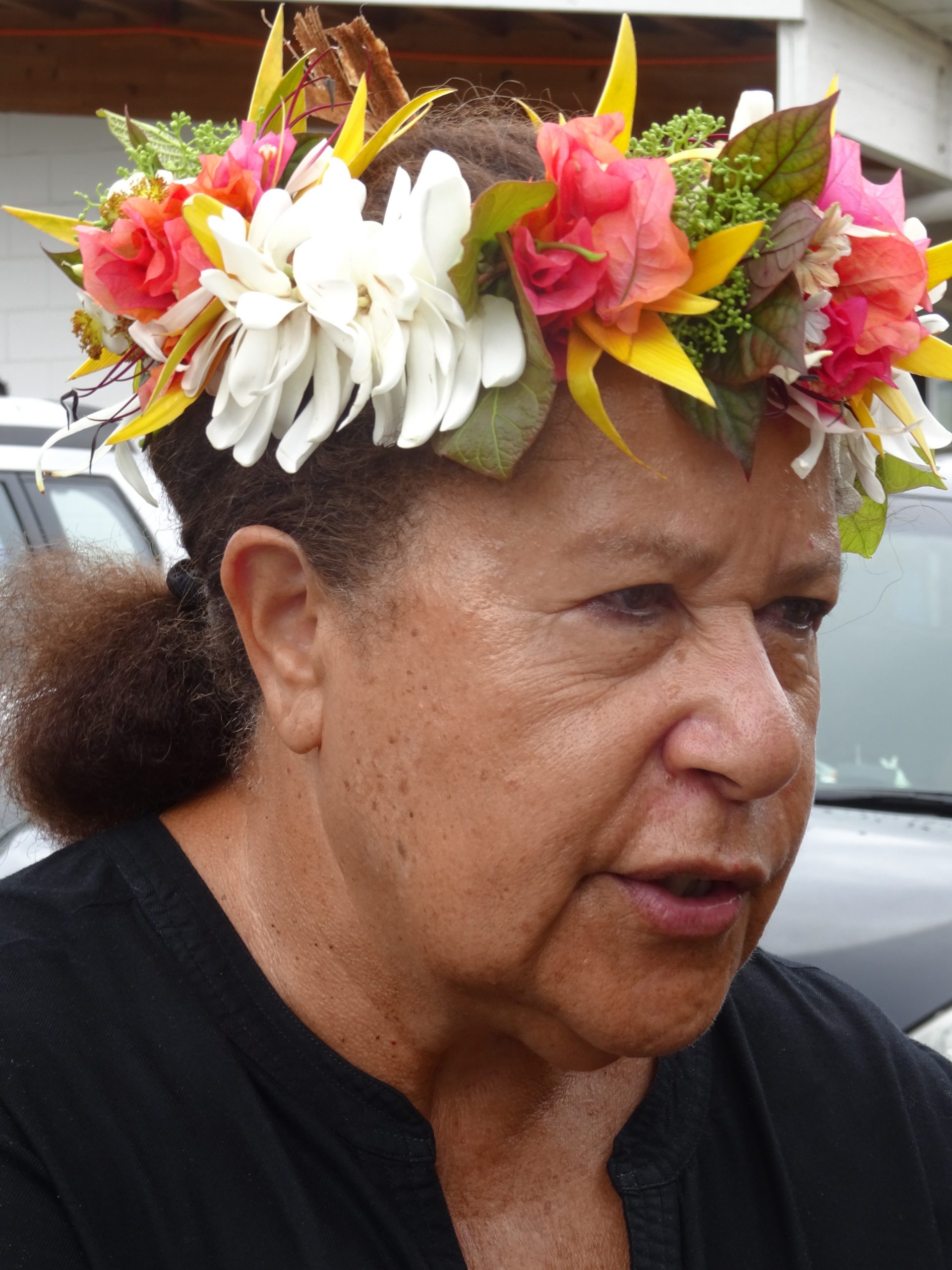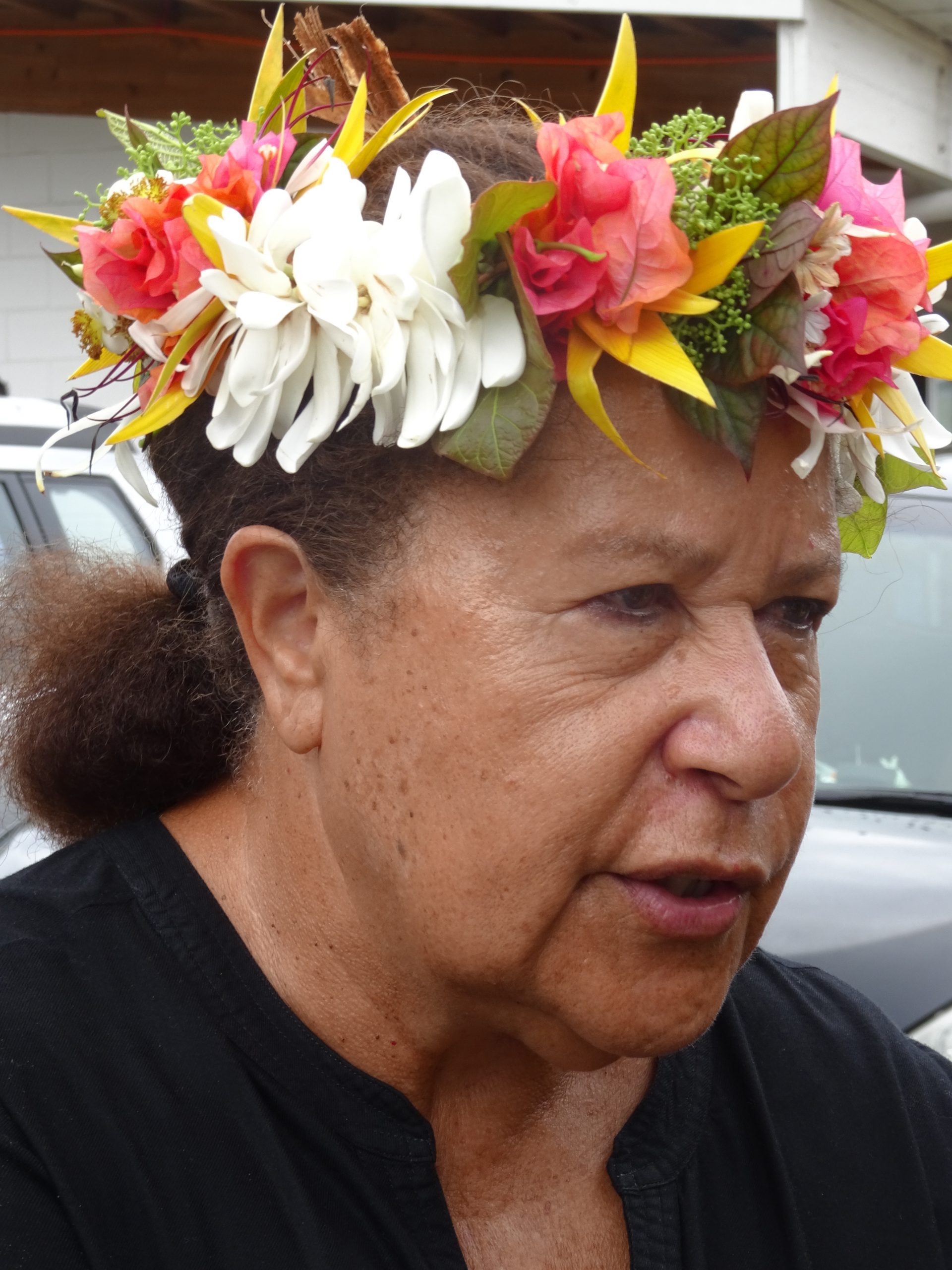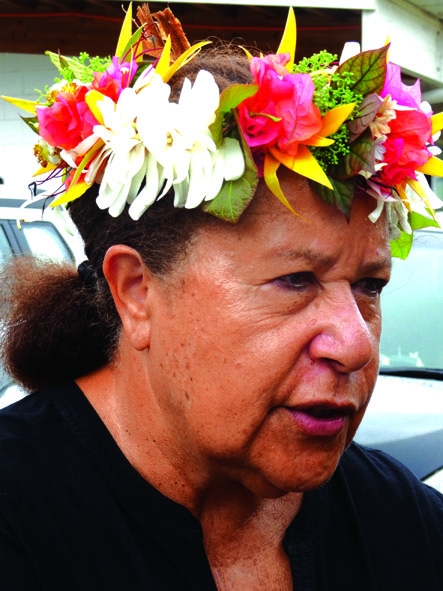Around the region, Pacific governments are introducing border controls and health regulations to limit the spread of the Covid-19 coronavirus. But regional organisations are also responding: a virtual meeting of Foreign Ministers has established a Pacific Humanitarian Pathway (PHP) to increase medical support to Forum island nations.
Dame Meg Taylor, Secretary General of the Pacific Islands Forum, spoke to Islands Business about the regional response to the coronavirus pandemic. Excerpts from the interview:
Dame Meg Taylor: We’re focussing very much on the health aspect and there’s a lot of bilateral negotiations going on with donors. But the Pacific Humanitarian Pathway (PHP) is a regional response, driven by the countries to say ‘This is the way we want it done.’
Everybody’s gone into an isolationist position because you’ve got to look after yourself first. Thinking of how we can all work together is not your natural instinct. But the Secretary General of the United Nations has really been driving this home: you have to work with the collective. That’s the job all Secretary Generals have – and the job I have. I’m really pleased that Pacific leaders have seen the merit of doing this.
IB:Did the Foreign Ministers Meeting discuss the economic as well as health effects of the pandemic?
Dame Meg: We’ve been instructed by the leaders to keep this focussed on health at the moment, but questions were asked around trade and economic issues. The Forum has already started work on that. Other institutions like the ADB and World Bank have done their work, while UNDP is looking at broader social impact issues. Fiji would like to see a virtual trade ministers meeting, but this will happen under the Forum rather than the Pacific Humanitarian Pathway. Our PHP focus is to get medical assistance to the countries and we will do that.
The big concern on the economic front is what sort of debt we incur, and how that will impact countries and the delivery of services in the longer term.
There’s an understanding in the region that the impact of this virus and global economic impacts will filter down to the Pacific. However, the feeling amongst leaders in the Pacific is that we’re going to take control in our countries and our region. If we don’t, we’re going to be left at the whim and interests of others. For the leaders, as well as looking at domestic issues, they’re also looking at how the geo-politics will play out.
IB:Is the response complicated by international geo-politics?
I’ve seen media reports in Australia with people worried, saying: “China is coming in and giving you people all this aid.” But China already has strong diplomatic relations in the region. Taiwan has relationships with some of our member states. China was quick off the mark – they’ve moved lots of supplies into the region. The Jack Ma Foundation is sending a shipment and they’ve designated that they want it to go to countries that have already been impacted, so we’ve said we’d get it to the countries through SPC and WHO.
Other countries are also helping. Australia and New Zealand are helping. [Australian Prime Minister] Scott Morrison has always raised the Pacific in his public statements, but Australia is launching its own Pacific corridor. We’ve had discussions that whatever they do and we do, we have to find complementarity.
I think our island countries want to help themselves. It’s like the climate issue – the voice of the Pacific needs to be heard.
The countries are saying that they want donors working closely with them, as they may be concerned that money coming in to the region is going to be captured by a third party.
If you don’t have co-ordination, you’re going to get every donor ringing every government saying ‘we can put together a charter for you.’ Countries are saying, if you want to bring in an aircraft, you have to abide by our protocols.
It’s not about sending people in to the countries to help – that what our countries are most fearful of. It’s a challenge for organisations like the WHO. Their personnel will have to quarantine before they travel. It’s very clear – island leaders are very concerned about any outside people coming in to their country at all.
IB: Is there a danger that the Covid-19 crisis will draw away international attention from other core key regional concerns?
Dame Meg: I think that is a concern and particularly on the climate issue. The greatest security threat now and into the future – with or without coronavirus – is the climate issue. Maybe Cyclone Harold is a reminder that climate change is always a vulnerability around the corner for us. Always. Coronavirus is the focus now, because if it spreads through the islands it could decimate our populations. Many countries have a strong memory of what happened with pandemics in times past, and that’s why they’ve sealed down their borders completely.
With the recession in major countries, you can see changes in the environment. There’s a reprieve for a short time. The fear is that China might triple its coal production to get back into business again.
IB: The islands with the highest confirmed rates of infections are often the US and French territories like Guam, New Caledonia and French Polynesia…
Dame Meg: Yes, the territories that are linked to metropolitan states were the ones that were impacted first – the numbers in French Polynesia are of concern.
IB:Will the scheduled Forum leaders meeting in Vanuatu proceed?
We haven’t made a decision, though we had discussions prior to the elections in Vanuatu. We’re waiting for the new government of Vanuatu before we can take this forward. The people of Vanuatu will be concerned about outsiders coming in. When we would have those meetings is still to be decided. It may only be a meeting of the leaders – the question is whether it will be face to face or whether it will be virtual. It’s all going to depend on what happens with the health and security of all our countries.
IB:How will this pandemic affect the regional debate about security into the future?
Dame Meg: There’s the health issue now, but some countries are already talking about the next phase of how we’re going to get through this. We’ve invoked the Biketawa Declaration, but the Boe Declaration underpins the next phase of the recovery. After health, there’s going to be recovery around food security, environmental security. The bigger countries have got problems, the smaller countries are extremely vulnerable. How the countries respond to this is going to be a sign of Pacific resilience.
IB:In many countries, are you seeing positive examples of communities preparing and mobilising?
Dame Meg: I think in the bigger islands, one of the good things is that everybody is planting and going back to our natural resources to feed ourselves. My own family and community in the Highlands of Papua New Guinea are getting their gardens going, so if there’s a long period of isolation, they will survive.
I think the hardest hit of our Pacific family will be the smaller island states and particularly our atoll states. We have to ensure that greater assistance goes to them in the longer term.


